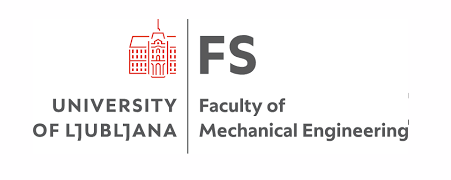Partners













1
Centre national de la recherche scientifique (CNRS)

As part of the CNRS, the Molecules and Switchable Materials group at the Bordeaux Institute of Condensed Matter Chemistry (ICMCB) and the University of Bordeaux, led by Guillaume Chastanet, focuses on developing multifunctional materials that change properties in response to environmental stimuli. Their research spans molecular electronics, sensors, and emerging applications like barocaloric cooling. The group’s expertise in pressure-induced spin conversion has led to innovations in solid-state cooling, with potential applications in energy-efficient technologies such as heat pumps and refrigerators. By combining advanced synthesis, crystallography, and nanoscience, they are designing materials with tailored properties for diverse applications.
2
University de Tours

As part of the University of Tours, CNRS and INSA Centre-Val de Loire, GREMAN is a laboratory specialized in materials, microelectronics, acoustics and nanotechnology . The team Oxides for Energy has developed a multi-scale approach that explores fundamental properties of materials and puts forward practical applications for nanoelectronics, thermal management, and energy storage. With advanced synthesis capabilities and state-of-the-art thermal conductivity and calorimetry techniques, GREMAN offers essential capabilities to unravel the potential of barocaloric materials in the FROSTBIT project.
3
Université de Lorraine (UL)

The UL team is a part of the Laboratory for Crystallography, Magnetic Resonance and Modeling at the University of Lorraine. They specialize in advanced crystallographic methods, in particular developing X-ray diffraction and diffusion techniques under external constraints (pressure, light, electric field). Their main focus will be on providing full details of the multiscale structural organization of most promising materials. This includes performing ex-situ and in-situ PDF studies under pressure to evaluate the induced (micro)structural organization and structural behavior of the selected materials.
4
University of Ljubljana

The UNILJ team is a part of the Laboratory for Non-linear Mechanics at the University of Ljubljana, which is headed by prof. dr. Miha Brojan. They specialize in pioneering elastocaloric cooling and heat-pumping technologies, an expertise obtained through the prestigious ERC Starting Grant project. The team, led by dr. Jaka Tušek, brings together diverse skills and perspectives. Their main focus will be contributing to the work package dedicated to the development and testing of barocaloric regenerator. This includes performing numerical modeling and optimization of the barocaloric regenerator and the groundbreaking design, construction, and testing of the world’s first regenerative barocaloric device.
5
Universitat Politècnica de Catalunya (UPC)

As part of the UPC, the Group of Characterisation of Materials (GCM) is integrated in the Barcelona Research Centre in Multiscale Science and Engineering (CCEM) and the Department of Physics. GCM is a global leader in energy materials for thermal storage, solid-state cooling, and complex polymorphism. With advanced capabilities in calorimetry, X-ray and neutron diffraction, and a range of spectroscopic techniques, GCM offers essential resources for the FROSTBIT project, leveraging facilities at UPC and CCEM.
6
TotalEnergies is a key contributor to the FROSTBIT project, focusing on advanced fluid technologies for applications like barocaloric regenerators, hydraulic systems, and cooling solutions for batteries, solar panels, and data centers. Their expertise includes enhancing performance in demanding fields, ensuring their fluids meet high standards for simulation and application performance.
At their Solaize Research Center in France, TotalEnergies offers access to top researchers and experimental facilities, including formulation and characterization laboratories. They prioritize safety, environmental performance, and durability, using Life Cycle Analysis tools to minimize the environmental impact of their fluid solutions, ensuring sustainability across all stages of development.
7
University of Kent

As part of the University of Kent, the research group led by Dr Helena J. Shepherd is located in the School of Chemistry and Forensic Science. It is also part of the Supramolecular, Interfacial and Synthetic Chemistry (SISC) research grouping. Their principal research interests are concerned with the design, synthesis and properties of new smart materials. The group conducts both fundamental studies aimed at rationalisation of the underlying physical phenomena giving rise to the switchable properties and also seeks to develop sustainable synthetic strategies for these systems.

